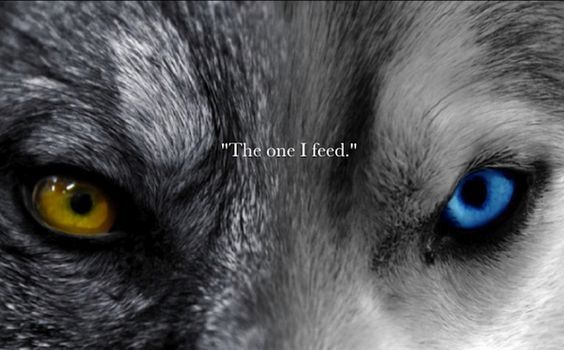The Obstacle in Our Path
In ancient times, a king had a boulder placed on a roadway. Then he hid and watched to see if anyone would move the rock out of the way. Some of the king’s wealthiest merchants and courtiers came by and simply walked around it. Many loudly blamed the king for not keeping the roads clear, but none did anything about getting the stone removed. A peasant then came along carrying a load of vegetables. Upon approaching the boulder, the peasant laid down his burden and tried to push the stone out of the road. After much pushing and straining, he finally succeeded. After the peasant went back to pick up his vegetables, he noticed a purse lying in the road where the boulder had been. The purse contained many gold coins and a note from the king indicating that the gold was for the person who removed the boulder from the roadway. The peasant learned what many others never understand: every obstacle presents an opportunity to improve one’s condition.

The Elephant Rope
A man was walking through an elephant camp and noticed that the elephants weren’t being kept in cages or held by the use of chains. All that was holding them back from escaping the camp was a small piece of rope tied to one of their legs. As the man gazed upon the elephants, he was completely confused as to why the elephants didn’t just use their strength to break the rope and escape the camp. They could easily have done so, but instead, they didn’t try to at all. Curious and wanting to know the answer, he asked a trainer nearby why the elephants were just standing there and never tried to escape. The trainer replied, “When they are very young and much smaller we use the same size rope to tie them and, at that age, it’s enough to hold them. As they grow up, they are conditioned to believe they cannot break away. They believe the rope can still hold them, so they never try to break free.” The only reason that the elephants weren’t breaking free and escaping from the camp was that over time they adopted the belief that it just wasn’t possible.
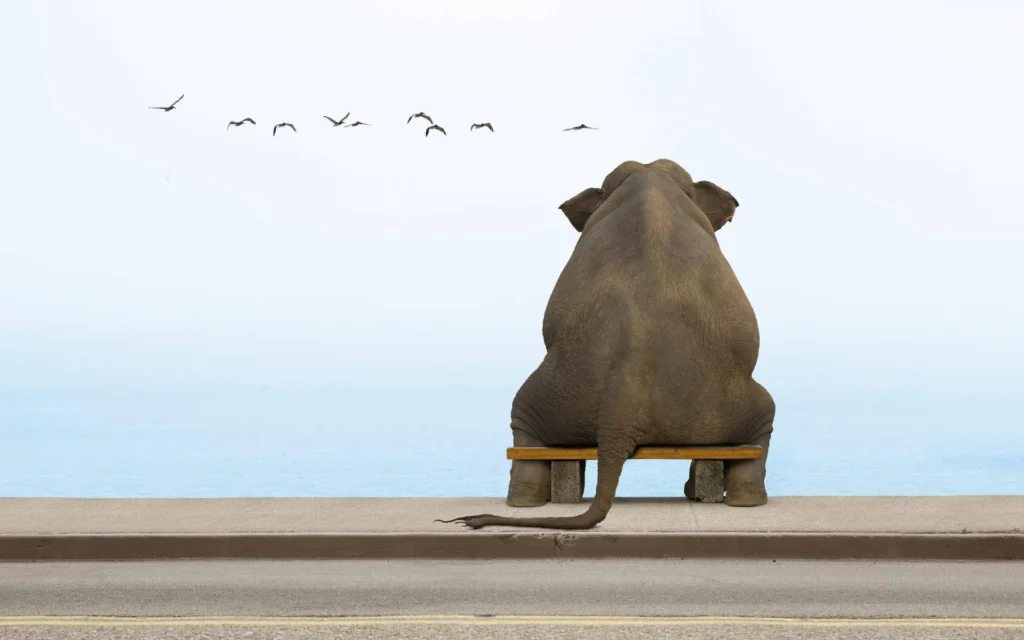
The Group of Frogs
As a group of frogs was traveling through the woods, two of them fell into a deep pit. When the other frogs saw how deep the pit was, they told the two frogs that they were as good as dead. The two frogs ignored the comments and tried to jump out of the pit with all their might. The other frogs kept telling them to stop, that they were as good as dead. Finally, one of the frogs took heed to what the other frogs were saying and gave up. He fell down and died. The other frog continued to jump as hard as he could. Once again, the crowd of frogs yelled at him to stop the pain and just die. He jumped even harder and finally made it out. When he got out, the other frogs said, “Did you not hear us?” The frog explained to them that he was deaf. He thought they were encouraging him the entire time.
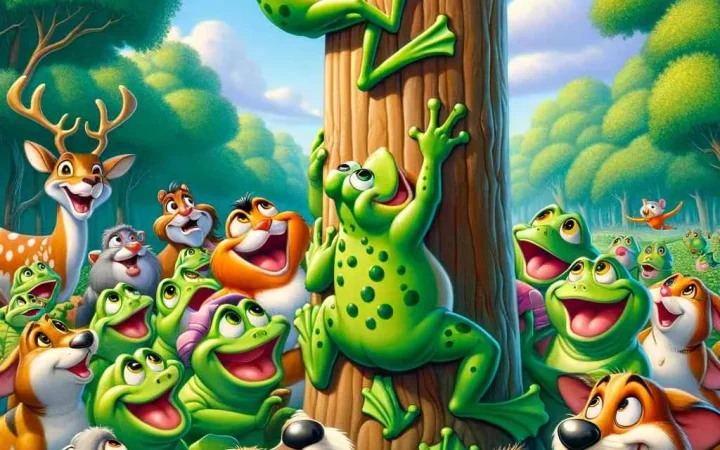
The Butterfly
A man found a cocoon of a butterfly. One day a small opening appeared; he sat and watched the butterfly for several hours as it struggled to force its body through that little hole. Then it seemed to stop making any progress. It appeared as if it had gotten as far as it could, and it could go no further. So, the man decided to help the butterfly. He took a pair of scissors and snipped off the remaining bit of the cocoon. The butterfly then emerged easily, but it had a swollen body and small, shriveled wings. The man continued to watch the butterfly because he expected that, at any moment, the wings would enlarge and expand to be able to support the body, which would contract in time. Neither happened! In fact, the butterfly spent the rest of its life crawling around with a swollen body and shriveled wings. It never was able to fly. What the man, in his kindness and haste, did not understand was that the restricting cocoon and the struggle required for the butterfly to get through the tiny opening were God’s way of forcing fluid from the body of the butterfly into its wings so that it would be ready for flight once it achieved its freedom from the cocoon.
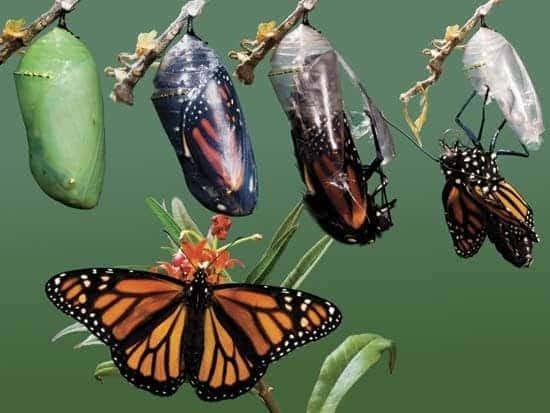
The Pencil
A boy was watching his grandmother write a letter. At one point, he asked: “Are you writing a story about what we’ve done? Is it a story about me?” His grandmother stopped writing her letter and said to her grandson, “I am writing about you, actually, but more important than the words is the pencil I’m using. I hope you will be like this pencil when you grow up.” Intrigued, the boy looked at the pencil. It didn’t seem very special. “But it’s just like any other pencil I’ve ever seen!” “That depends on how you look at things. It has five qualities which, if you manage to hang on to them, will make you a person who is always at peace with the world. First quality: you are capable of great things, but you must never forget that there is a hand guiding your steps. We call that hand God, and He always guides us according to His will. Second quality: now and then, I have to stop writing and use a sharpener. That makes the pencil suffer a little, but afterward, it’s much sharper. So you, too, must learn to bear certain pains and sorrows because they will make you a better person. Third quality: the pencil always allows us to use an eraser to rub out any mistakes. This means that correcting something we did is not necessarily a bad thing; it helps to keep us on the road to justice. Fourth quality: what really matters in a pencil is not its wooden exterior, but the graphite inside. So always pay attention to what is happening inside you. Finally, the pencil’s fifth quality: it always leaves a mark. In just the same way, you should know that everything you do in life will leave a mark, so try to be conscious of that in your every action.”

The Starfish
One day, a man was walking along the beach when he noticed a boy picking up something and gently throwing it into the ocean. Approaching the boy, he asked, “What are you doing?” The youth replied, “Throwing starfish back into the ocean. The surf is up and the tide is going out. If I don’t throw them back, they’ll die.” “Son,” the man said, “don’t you realize there are miles and miles of beach and hundreds of starfish? You can’t make a difference!” After listening politely, the boy bent down, picked up another starfish, and threw it back into the surf. Then, smiling at the man, he said, “I made a difference for that one.”

The Stonecutter
Once upon a time, there was a stonecutter who was dissatisfied with himself and his position in life. One day, he passed a wealthy merchant’s house and through the open gateway, saw many fine possessions and important visitors. “How powerful that merchant must be!” thought the stonecutter. He became very envious and wished that he could be like the merchant. To his great surprise, he suddenly became the merchant, enjoying more luxuries and power than he had ever imagined, but envied and detested by those less wealthy than himself. Soon a high official passed by, carried in a sedan chair, accompanied by attendants and escorted by soldiers beating gongs. Everyone, no matter how wealthy, had to bow low before the procession. “How powerful that official is!” he thought. “I wish that I could be a high official!” Then he became the high official, carried everywhere in his embroidered sedan chair, feared and hated by the people all around. It was a hot summer day, and he felt very uncomfortable in the sticky sedan chair. He looked up at the sun. It shone proudly in the sky, unaffected by his presence. “How powerful the sun is!” he thought. “I wish that I could be the sun!” Then he became the sun, shining fiercely down on everyone, scorching the fields, cursed by the farmers and laborers. But a huge black cloud moved between him and the earth, so that his light could no longer shine on everything below. “How powerful that storm cloud is!” he thought. “I wish that I could be a cloud!” Then he became the cloud, flooding the fields and villages, shouted at by everyone. But soon he found that he was being pushed away by some great force and realized that it was the wind. “How powerful it is!” he thought. “I wish that I could be the wind!” Then he became the wind, blowing tiles off the roofs of houses, uprooting trees, hated and feared by all below. But after a while, he ran up against something that would not move, no matter how forcefully he blew against it—a huge, towering stone. “How powerful that stone is!” he thought. “I wish that I could be a stone!” Then he became the stone, more powerful than anything else on earth. But as he stood there, he heard the sound of a hammer pounding a chisel into the hard surface and felt himself being changed. “What could be more powerful than I, the stone?” he thought. He looked down and saw far below him the figure of a stonecutter.
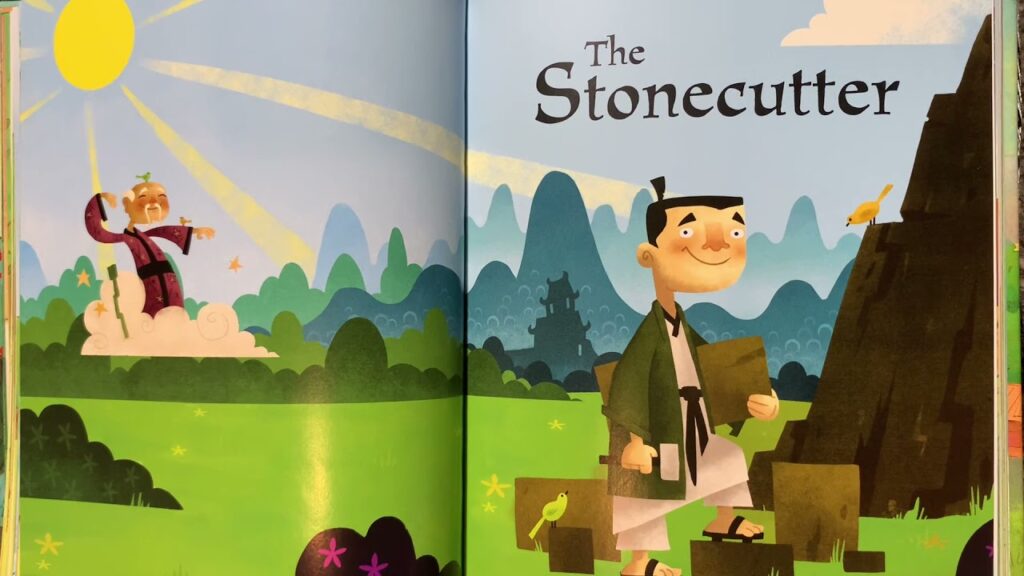
The Three Trees
Once there were three trees on a hill in the woods. They were discussing their hopes and dreams when the first tree said, “Someday I hope to be a treasure chest. I could be filled with gold, silver, and precious gems. I could be decorated with intricate carvings and everyone would see the beauty.” Then the second tree said, “Someday I will be a mighty ship. I will take kings and queens across the waters and sail to the corners of the world. Everyone will feel safe in me because of the strength of my hull.” Finally, the third tree said, “I want to grow to be the tallest and straightest tree in the forest. People will see me on top of the hill, look up to my branches, and think of the heavens and God and how close to them I am reaching. I will be the greatest tree of all time, and people will always remember me.” After a few years of praying that their dreams would come true, a group of woodsmen came upon the trees. When one came to the first tree he said, “This looks like a strong tree, I think I should be able to sell the wood to a carpenter,” and he began cutting it down. The tree was happy because he knew that the carpenter would make him into a treasure chest. At the second tree, the woodsman said, “This looks like a strong tree. I should be able to sell it to the shipyard.” The second tree was happy because he knew he was on his way to becoming a mighty ship. When the woodsmen came upon the third tree, the tree was frightened because he knew that if they cut him down his dreams would not come true. One of the woodsmen said, “I don’t need anything special from my tree, I’ll take this one,” and he cut it down. When the first tree arrived at the carpenter’s, he was made into a feed box for animals. He was then placed in a barn and filled with hay. This was not at all what he had prayed for. The second tree was cut and made into a small fishing boat. His dreams of being a mighty ship and carrying kings had come to an end. The third tree was cut into large pieces and left alone in the dark. The years went by, and the trees forgot about their dreams. Then one day, a man and a woman came to the barn. She gave birth and placed the baby in the hay in the feed box that was made from the first tree. The man wished that he could have made a crib for the baby, but this manger would have to do. The tree could feel the importance of this event and knew that it had held the greatest treasure of all time. Years later, a group of men got in the fishing boat made from the second tree. One of them was tired and went to sleep. While they were out on the water, a great storm arose and the tree didn’t think it was strong enough to keep the men safe. The men woke the sleeping man, and he stood and said, “Peace,” and the storm stopped. At this time, the tree knew that it had carried the King of Kings in its boat. Finally, someone came and got the third tree. It was carried through the streets as the people mocked the man who was carrying it. When they came to a stop, the man was nailed to the tree and raised in the air to die at the top of a hill. When Sunday came, the tree came to realize that it was strong enough to stand at the top of the hill and be as close to God as was possible because Jesus had been crucified on it.
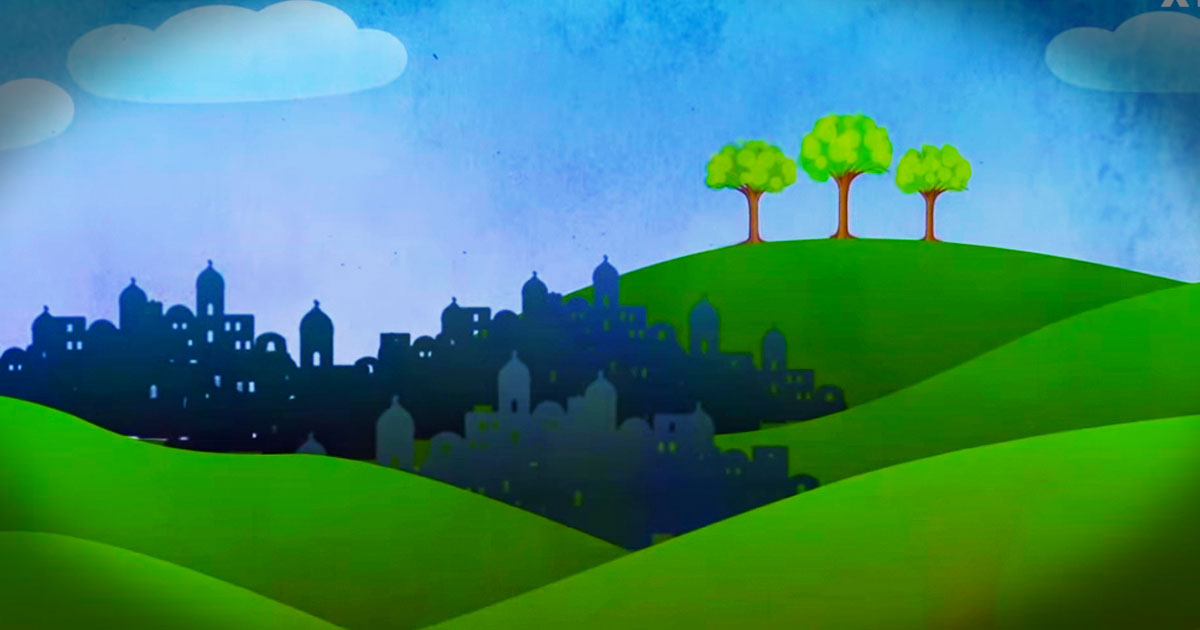
The Weight Of The Glass

The Wolf You Feed
An old Cherokee is teaching his grandson about life. “A fight is going on inside me,” he said to the boy. “It is a terrible fight and it is between two wolves. One is evil—he is anger, envy, sorrow, regret, greed, arrogance, self-pity, guilt, resentment, inferiority, lies, false pride, superiority, and ego.” He continued, “The other is good—he is joy, peace, love, hope, serenity, humility, kindness, benevolence, empathy, generosity, truth, compassion, and faith. The same fight is going on inside you—and inside every other person, too.” The grandson thought about it for a minute and then asked his grandfather, “Which wolf will win?” The old Cherokee simply replied, “The one you feed.”
